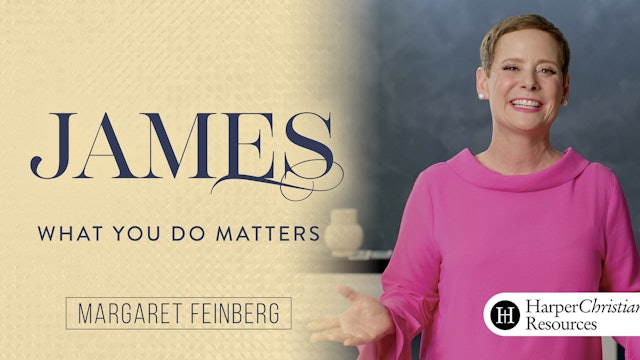James: What You Do Matters (Margaret Feinberg)
Study of a Book of the Bible: James
"If there's one book that has taught me that what I do matters, it's the book of James." Join beloved author and speaker Margaret Feinberg in a joy-filled, fresh study of the book of the Bible that sounds more like Jesus than any other letter in the New Testament. You'll discover the genuine markers of true faith, develop new practices of spiritual maturity, and discover how much the Father of heavenly lights treasures you.
Available Products:
Study Guide
Free Extras:
Study Guide First Chapter
-
S1: How You Respond to Hardship Matters (James)
Practicing a defiant joy is an active engagement of the mind in which we choose to place our trust in the character and competence of God. No matter what we’re facing, we remain suspicious that God is up to something good. Because when we look for the goodness of God, we will find him.
-
S2: Your Response to God's Word Matters (James)
One thing that makes us a hearer of God’s Word and not a doer is good intentions. We might be world class when it comes to thinking about doing something kind or compassionate for others, but when it comes to actually doing them...! The longer we wait to do what the Word of God prompts us to do, ...
-
S3: How You See Others Matters (James)
Three practical actions to become mercy people:
1. Ruthlessly eliminate what makes you more judgmental.
2. Surround yourself with mercy people.
3. Prayerfully ask God, "Who is your favorite for me today?" -
S4: What You Say Matters (James)
It’s really hard to fulfill Jesus’ command to love your neighbor as yourself if you don’t even like yourself. If you struggle with your internal dialogue,
healing and freedom are possible. -
S5: How You Live Matters (James)
A common phrase in business is ‘The customer is always right.’ But if
left unchecked, we can become ‘customers’ who are entitled, impatient,
and unkind—sharing some of the same attitudes of the wealthy James describes, such as entitlement, impatience, or unkindness.







